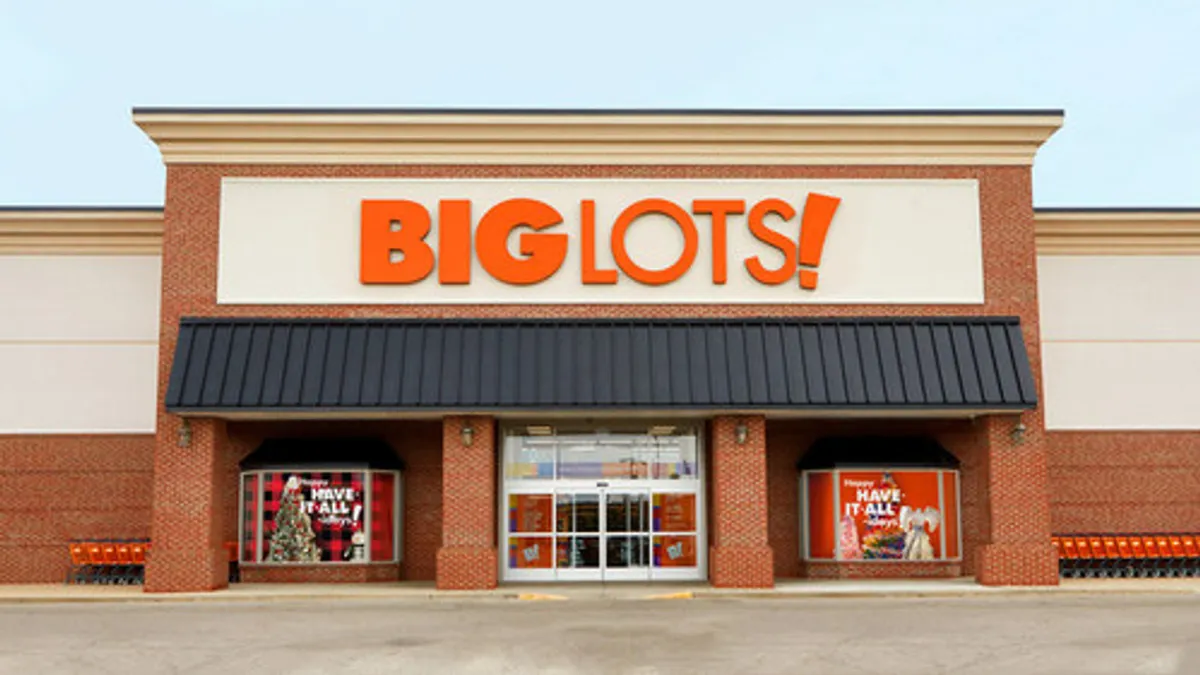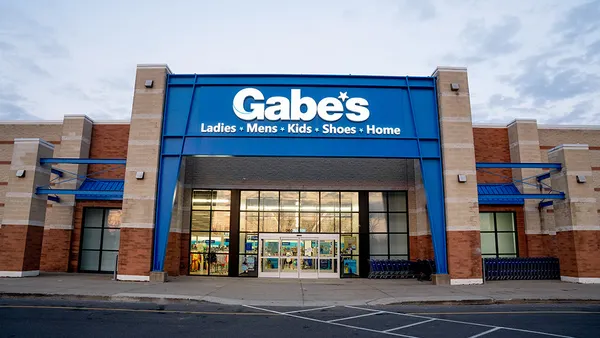Big Lots has agreed to pay retention bonuses to keep four top executives on board as the retailer navigates through an ongoing period of operational and financial uncertainty.
The company’s board of directors on Aug. 12 approved one-time cash retention awards totaling about $5.2 million for the executive officers, according to a filing with the U.S. Securities and Exchange Commission from earlier this month.
CEO Bruce Thorn was awarded $3.15 million; Chief Financial and Administrative Officer Jonathan Ramsden was offered $969,938; and Ronald Robins, Jr., the company’s chief legal and governance officer, who also serves as the general counsel and corporate secretary, and Michael Schlonsky, the chief human resources officer, were each offered $561,058.
“Payment of these kinds of bonuses can be another signal that bankruptcy is coming in the near term for the company,” Sarah Foss, global head of legal and restructuring at Debtwire, told Retail Dive in emailed comments. “They want to make sure that their key executives stay on during a Chapter 11 and they don't have to fight during the case itself over payment of the bonuses.”
The retention agreements require each executive officer to repay the money if they voluntarily leave the company within 12 months of signing the agreement, except in the case of a constructive termination or if they are let go by the company for cause.
Thorn has served as CEO and a board member since 2018. Ramsden was appointed to his role in 2019. Schlonsky has been with the company for over 30 years, joining in 1993 as staff counsel. And Robins became Big Lots' general counsel and corporate secretary in 2015. Big Lots did not immediately respond to Retail Dive's request for comment if each person had signed the agreement.
The retailer began taking cost-cutting actions last summer. Last August, the company completed a sale-leaseback of 22 stores and a California distribution center. In April, the retailer took out another $200 million term loan backed in part by a mortgage on the company’s corporate headquarters in Columbus, Ohio, and liens on most of Big Lots’ working capital and personal property assets.
Then, in June, Big Lots issued a going concern warning, saying it might fail to meet its credit and loan obligations in the near future. Finally, earlier this month, the company secured amended credit and loan terms that allow it to close up to 315 underperforming stores, more than double the 150 allowed under a previous agreement. The company had nearly 1,400 stores in June.
Big Lots’ value proposition is centered on closeouts, liquidations and overstocks. But if the company is unable to find a buyer or a lender willing to pump additional liquidity into the company, Debtwire’s Foss said Big Lots itself may end up liquidating in bankruptcy, following a similar path as 99 Cents Only Stores and furniture and home decor retailer Conn’s.
“Discount chains like Big Lots have faced a tough retail environment this year, with Lumber Liquidators, Bob’s Stores, Joann and The RoomPlace Furniture and Mattress also commencing Chapter 11 cases this year,” Foss said in emailed commentary. Big Lots’ Q1 net sales fell 10.2% to $1 billion, down from $1.1 billion last year, while comparable sales fell nearly 10% year over year.













